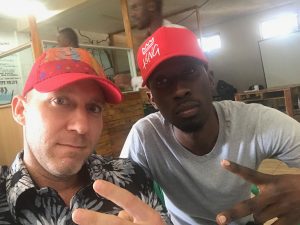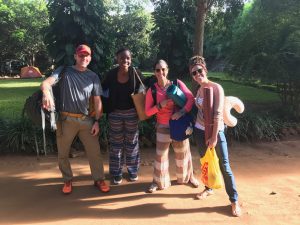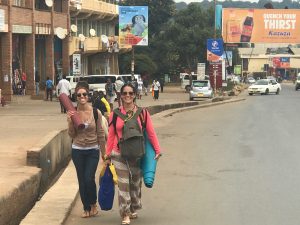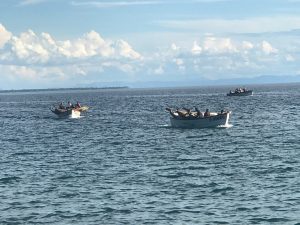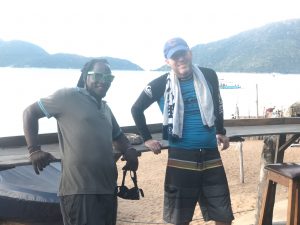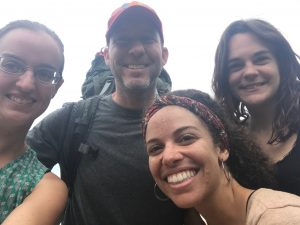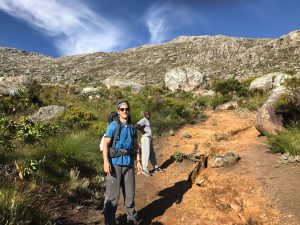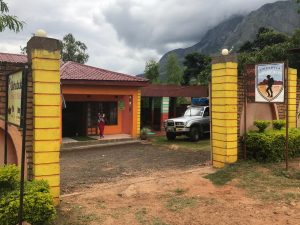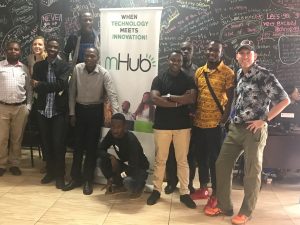A Soul-Liberating Experience in Malawi
A Soul-Liberating Experience in Malawi
Malawi is called the Warm Heart of Africa due to the Compassionate People
Top tips:
– Scuba dive, hike and kick back on the shores of Lake Malawi.
– Tackle the challenging trek to the summit of Mount Mulanje.
– Splurge on Korean food in the capital, Lilongwe
Arriving in Lilongwe, I felt beaten down from my time in Zimbabwe and needed to rejuvenate my soul. I was met by Vincent, a softly spoken innovator at mHub (Malawi’s first tech hub), and the drive from the airport gave me my first glimpse of this former British colony.
Lilongwe is a sprawling city, with some visible investment from British banks and South African supermarkets but nothing that appeared sustainable. mHub was situated in a three-story building surrounded by mostly vacant offices and provided a space for local entrepreneurs to create innovative solutions to life’s necessities. There were insurance products, fashion accessories and a guy who’d created a uniquely local soda flavor to rival Coca-Cola.
It was a relaxed atmosphere, with everyone smiling and laughing. Taking things in their stride. But there was a sense that people only felt they had the capacity to do so much, then what?
I spent a few hours chatting with a guy about his insurance selling scheme and how to make it competitive in the current market. He offered to drive me back to my hostel at the end of the day and asked why I wasn’t married. I replied: “I don’t know, I just like to explore”.
He said: “my wife and kids are my life, without them I have nothing. I know you people in the west have different values and desires but nothing beats a family. When you go back, you should try.” He was right, people in the United States (particularly San Francisco) valued career and monetary wealth over all else. It was just our society.
Vincent and I reconnected over dinner at a famous Korean restaurant where politicians often met. He had been nominated as a Mandela fellow to travel to Washington D.C. the following year to take part in workshops centered around making Africa a better place. We discussed the idea of working together alongside startups in Zambia or Zimbabwe. That conversation formed the beginning of Southern Africa Venture Partners (www.savp.co).
Back at the hostel, I met three Peace Corps girls who were camping out in the yard and planning to make a trip to Lake Malawi. Next thing I knew, I was on a jam-packed, eight-hour bus trip where I was being slammed up against the windscreen at every turn. The only break was when the bus stopped to allow vendors on, with everything from small fish to peanuts and fruit being sold. I bought a bunch and passed them around in the hope they’d eventually reach two of the girls who were squished into the back seat.
We bundled into a small car loaded with a sofa on its roof for the remainder of the journey, bumping down a dirt road before one of the most beautiful lakes I’d ever seen came into view. The lakeside area where we camped featured a mix of locals and foreign travelers, with dance parties and music playing every night.
We spent our days lounging, talking and reading, as well as scuba diving in the pristine waters and hiking a nearby mountain. Venturing off the main trekking path, I came face-to-face with a snake that scared me shitless, before recovering for the last stretch to the peak where there were expansive views across the lake below. By the time we’d descended through the small villages that clustered on the lower slopes, we’d done a good 15 km and were knackered.
After leaving Lake Malawi, I realized it had been one of the best times I’d had so far in Africa and felt quite nostalgic. But it was time to head south where I’d continue teaching and reconnect with Max from Uganda. I snagged a ride to Blantyre with some British doctors who were doing research into local diseases at the hospital there.
Blantyre was much smaller than Lilongwe and I bunked down at a hotel within walking distance of both the tech accelerator and the university. I worked alongside Dzuffa, a South African lady who was establishing a local school, and Arthur, a young entrepreneur trying to get an incubator off the ground.
I was also given the contact of an American who led hiking tours to Mount Mulanje and we headed off through small towns and backroads on the three-hour drive. Along the way, we stopped to buy instant soup, noodles, peanut butter and fruit for the trek, as well as Axe deodorant (I was like “wow” – Proctor and Gamble are really doing good stuff).
The first day of the trek was an easy eight kilometers through the dense rainforest before ascending sharply to our first lodge. We bathed in a freezing cold river and then hung out around a small fire in the lodge while eating our noodles and vegetables.
The following day began with a six-kilometer hike to the next lodge at the base of the summit where we met a group of Americans who’d just come down. They warned us that it was challenging and to be careful on the ropes. We decided to summit that afternoon, clambering over boulders, climbing on all fours and pulling ourselves up by ropes, ascending 1,500 meters in elevation to the 3,000+-meter-high peak. It was a beast. By the time we reached the top, we were ecstatic, then quickly passed out on arrival back at the lodge that night.
As we descended back to the base of Mount Mulanje the following day, we stopped at a waterfall, which felt like the perfect way to end what had been an unforgettable adventure. Max couldn’t stop talking about how much he enjoyed hiking mountains and that it sets him free. His enthusiasm for the outdoors really rubbed off on me. I thought he was right – it really is liberating.
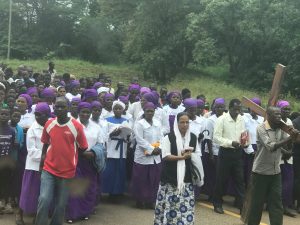
Carrying the Cross on Easter in Malawi
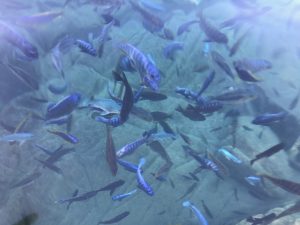
Cichlids in Lake Malawi
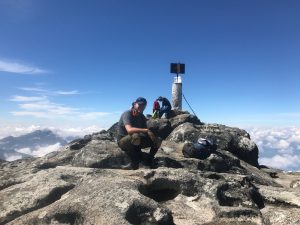
Top of Mount Mulanje
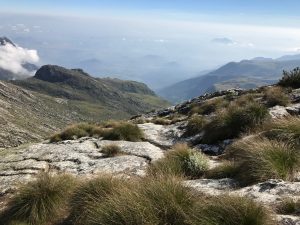
Mount Mulanje
